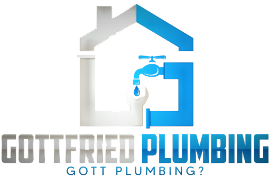
Tank vs. Tankless Water Heaters: A Boerne Plumber’s Guide to Choosing the Right System

Introduction
Choosing the right water heater can be a daunting task, especially when it comes to deciding between traditional tank systems and modern tankless options. Both have their perks and pitfalls, which can significantly impact your daily life and utility bills. As a homeowner or business operator in Boerne, TX, understanding these differences is crucial for making an informed decision. In this comprehensive guide, we’ll explore Tank vs. Tankless Water Heaters from the perspective of a seasoned Boerne plumber, ensuring you get all the information you need to make an educated choice. With insights from Gottfried Plumbing in Boerne, TX, we will delve into various aspects such as installation costs, maintenance requirements, energy efficiency, and much more.
Tank vs. Tankless Water Heaters: A Boerne Plumber’s Guide to Choosing the Right System
When it comes to selecting a water heating system, it's vital to weigh both options carefully. The traditional tank water heater stores hot water in a large tank, ready for use when you need it. On the other hand, tankless water heaters heat water on demand, offering an endless supply of hot water without the bulkiness of a storage tank.
What Are Tank Water Heaters?
Tank water heaters are perhaps what most people envision when they think about hot water systems. These units store Whole house and partial re-piping specialists anywhere from 20 to 80 gallons of heated water and keep it at a consistent temperature until needed.
Advantages of Tank Water Heaters
- Lower Initial Costs: Generally less expensive upfront compared to tankless models.
- Simple Installation: Easier and quicker to install since they don't require complex modifications.
- Reliability: Proven technology with years of dependability.
Disadvantages of Tank Water Heaters
- Limited Hot Water Supply: Once the stored hot water runs out, you'll have to wait for it to refill and reheat.
- Higher Energy Bills: Continuously heats water even when not in use.
What Are Tankless Water Heaters?
Tankless or on-demand water heaters heat water only as you need it. They do not store any hot water but instead rely on powerful heating elements that activate when the tap is turned on.
Advantages of Tankless Water Heaters
- Unlimited Hot Water: No need to worry about running out during peak usage times.
- Energy Efficiency: Only heats water when necessary; therefore, lower energy bills over time.
Disadvantages of Tankless Water Heaters
- Higher Initial Costs: More expensive upfront than traditional tanks.
- Flow Rate Limitations: May struggle to provide sufficient hot water for multiple simultaneous uses.
Key Differences Between Tank and Tankless Systems
Understanding these key differences can help you decide which option suits your needs better.
1. Energy Efficiency Comparison
Tank Water Heaters tend to consume more energy due to standby heat loss—energy wasted while maintaining the temperature of stored hot water. Conversely, tankless models excel in energy efficiency as they only heat when needed.
2. Space Considerations
If you're short on space, tankless heaters are typically more compact than their tank counterparts. This could be essential for homeowners looking for efficient use of space.
3. Maintenance Requirements
Both types require upkeep; however, tank systems may need regular flushes to avoid sediment buildup while tankless systems often require descaling every few years.
4. Lifespan Expectancy
On average, traditional tanks last about 10–15 years whereas tankless heaters can last up to 20 years or more with proper maintenance.
Costs Associated with Each System
Knowing how much you’ll spend both initially and over time can help direct your choice.
Initial Purchase Price
While prices can vary based on brand and capacity:
- A standard tank heater might cost between $300-$800.
- A comparable tankless unit could range from $800-$2,500 or more.
Installation Costs
Installation costs also differ significantly:
- Installing a conventional unit generally costs around $300-$500.
- Installing a tankless system might run between $1,000-$3,000 due to additional plumbing needs.
Ongoing Operational Costs
Operational costs come into play once your unit is installed:
- Traditional systems may cost between $400-$600 annually in energy bills.
- Conversely, owners of tankless systems could see savings bringing their total down by 30% or more annually.
Choosing the Right Size for Your Needs
Size matters! Here’s how you can determine what fits best for your household:
For Traditional Tanks
Calculate based on family size:
- One person: 20–30 gallons
- Two people: 30–40 gallons
- Three people: 40–50 gallons
- Four or more: 50–80 gallons
For Tankless Systems
Consider flow rates: Determine how many fixtures may be used simultaneously (e.g., showers + dishwasher). Calculate total flow rate required (in gallons per minute) based on each fixture's demand.
Environmental Impact Considerations
Today’s consumers are increasingly eco-conscious. Here’s how each system stacks up environmentally:
Carbon Footprint
Tank systems generally produce higher CO2 emissions because they continuously heat stored water using fossil fuels or electricity. In contrast:
- Modern tankless solutions are often compatible with renewable energy sources like solar power.
Recyclability
Both systems have components that can be recycled; however, consider longevity—tankless units may offer extended service life leading ultimately to less waste generation over time.
Boerne Plumbing Codes and Regulations
It’s important to comply with local plumbing codes when installing any new system:
Permitting Process
In Boerne TX:
FAQs
Q1: Which type is better for larger families?
A1: Generally speaking, tank models may offer adequate supply but if multiple fixtures will be utilized simultaneously regularly then consider going for a high-capacity or multiple smaller capacity tankless units instead!
Q2: How long does it take for each system to refill?

Q3: Can I install these myself?
A3: While DIY projects can be fun & educational; improper installations might lead costly repairs later! It's advisable consult qualified plumbers near me like Gottfried Plumbing who guarantee workmanship!
Q4: What maintenance do both types require?
A4: Regular flushing (for sediment build-up) & annual inspections (for leaks) are recommended practices regardless! Also note descaling procedures differ too depending upon hardness levels found within local supplies!

Q5: Do I really save money switching from one type another?
A5: Yes! While initial costs might escalate initially; cumulative savings accumulated through reduced operational expenses alongside environmental benefits could justify overall transition long-term!
Q6: What happens if I choose poorly? Will I regret my decision?
A6: Certainly! Investing time researching options available beforehand ensures peace-of-mind moving forward knowing you've made informed choices tailored specifically towards unique lifestyle needs whether opting conventional/tank-less alternatives!
Conclusion
Ultimately choosing between a traditional tank heater versus its modern counterpart boils down personal preferences along lifestyle Sewer line repair and maintenance experts demands faced daily by households throughout greater Boerne region! Both options bring unique sets advantages/disadvantages that should be thoroughly considered before making final decisions—especially regarding finances & overall comfort levels within homes alike!
For further assistance navigating this decision-making process feel free reach out certified professionals at Gottfried Plumbing in Boerne TX who possess extensive expertise knowledge surrounding all kinds plumbing needs including emergency services available around clock whenever required across community!